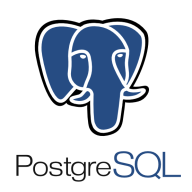

Find out what your peers are saying about Oracle, PostgreSQL, Firebird and others in Open Source Databases.
| Product | Market Share (%) |
|---|---|
| PostgreSQL | 16.6% |
| YugabyteDB | 0.8% |
| Other | 82.6% |

| Company Size | Count |
|---|---|
| Small Business | 58 |
| Midsize Enterprise | 26 |
| Large Enterprise | 45 |
PostgreSQL is a versatile and reliable database management system commonly used for web development, data analysis, and building scalable databases.
It offers advanced features like indexing, replication, and transaction management. Users appreciate its flexibility, performance, and ability to handle large amounts of data efficiently. Its robustness, scalability, and support for complex queries make it highly valuable.
Additionally, PostgreSQL's extensibility, flexibility, community support, and frequent updates contribute to its ongoing improvement and stability.
YugabyteDB is a high-performance distributed SQL database for powering global, internet-scale applications. ... As a cloud native database, it can be deployed across public and private clouds as well as in Kubernetes environments with ease. YugabyteDB is developed and distributed as an Apache 2.0 open source project.
We monitor all Open Source Databases reviews to prevent fraudulent reviews and keep review quality high. We do not post reviews by company employees or direct competitors. We validate each review for authenticity via cross-reference with LinkedIn, and personal follow-up with the reviewer when necessary.